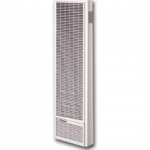Any ideas how to damp a ambient wall heater made of Sheet metal ?
It rings @ +5khz
MLV type rubber or composite do it?
http://www.soundprooffoam.com/vinyl-barrier.html
T
It rings @ +5khz
MLV type rubber or composite do it?
http://www.soundprooffoam.com/vinyl-barrier.html
T


